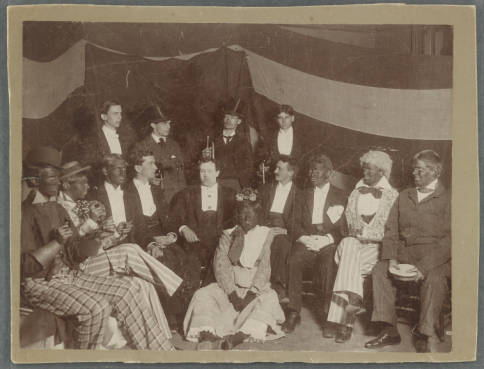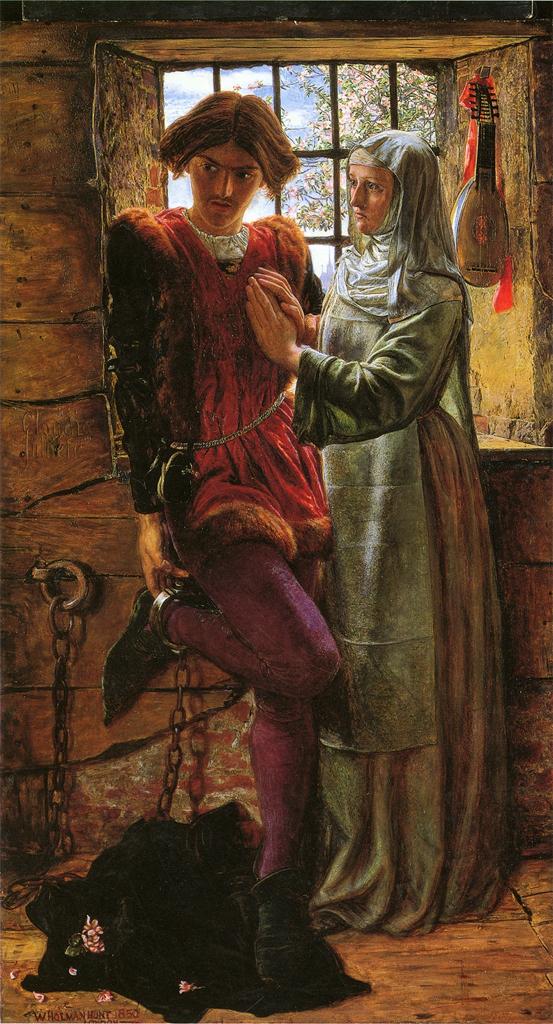Inherited at such a young age, language appears an embedded, inherent function of human experience. It provides a lexical framework through which meaning can be communicated, shared, and recorded. Shakespeare’s deployment of variable meanings through puns endow language a dominant role in the creation of cultural tradition; language is a tool for persuasion and interaction. The figure of Caliban, however, punctures the hegemony of conventional linguistic traditions that seek to distinguish and categorize through naming. By creating space for alternative sounds, Caliban concomitantly reimagines the position of man in nature that initiates am early eco-consciousness. Continue reading
Category Archives: Scholarly Criticism
Broken Narrative
Shakespeare’s The Tempest is riddled with interruption. All facets of the play from Prospero’s language to the play’s plot as a whole are consistently disrupted. This style of narrative contrasts the play’s establishment of time and place, which are standard of any traditionally well-made plot, and Shakespeare’s typically more coherent plays. An audience may ask then: why is interruption so central to The Tempest? How does such a disjoint narrative actually enhance instead of confuse the play’s story? And, what, if anything, might interruption reveal to the audience? Continue reading
Magic in The Tempest
Magic is not a frequently discussed topic, outside of eccentric video gamers and the handful of trading card enthusiasts. It is certainly not a topic one would expect any sort of scholarly article to take on seriously. However, that is exactly what Barbara Mowat, the director of research at the Folger Shakespeare library does. Continue reading
Otherization in The Tempest
In her article “Shakespeare’s Tempest and the Discourse of Colonialism”, Deborah Willis seeks to criticize the current state of discourse regarding the depiction of colonialism in The Tempest. Specifically, she seeks to criticize the arguments made by Paul Brown in a recent essay. Continue reading

Caliban and Sambo
At the height of the American Civil War, the debate on slavery raged in the American North and South. The North supported the abolition of slavery whereas the South wanted to keep the institution of slavery to sustain their plantation-centric economy. Where Shakespeare’s The Tempest enters the fray is with a political cartoon published at the midpoint of the war: January 24, 1863.
The Lonely Female and Her Nonexistent Agency
There is a glaring lack of women with agency (or women at all for that matter) in The Tempest. The romance as a whole is oddly reminiscent of something out of Disney – there’s certainly no doubt Disney has adopted this story line in some aspect of a Princess film – but even more so than the romantic happy ending plotline, the protective, paternalistic figure controlling the destiny of his daughter narrative is one that has been told and retold in all aspects of entertainment. Although considered a “heroine,” Miranda evidently lacks the confidence or power to be considered a strong woman or a symbol of feminism by any means. Certainly, she is young and her innocence informs her emotional reactions, the first of which is to the shipwreck. In her very first lines, Miranda sympathizes to an almost depressive level, claiming “I have suffered/ With those that I suffer: a brave vessel,/ Who had, no doubt, some noble creature in her/ Dashed all to pieces!” (1.2.5-8). A melancholy, emotional girl of little direction, Miranda looks to her one and only companion and superior, her father, for any and all answers. Continue reading
(Post) Colonized Caliban
Recent scholarship has begun examining the relationship of Caliban and Prospero through the lens of postcolonialism, leading to a discourse that explores this relationship as analogous with that of the colonized and colonizers. This argument aligns Shakespeare’s work in the context of history, applying it directly to actual events. This allegorical reading explores the nuances of Caliban being abused by Prospero after introducing him to the island and the way that aspects of physical abuse and use of language work in ways to oppress Caliban as parallel to that of European powers colonizing Africa and the “New World”. Continue reading
Measure for Measure: The Bed-Trick
Processing Measure for Measure as a twentieth century female is terrible. It is uncomfortable to say the least, to watch a pious virginal woman be forced to choose between her brother’s life and her agency over her body. Not only does Angelo want Isabella’s, body and virginity, but he also wants her consent. He wants Isabella to want to have sex with him—freeing him of guilt perhaps? And so, Isabella, in quiet the bind, decides to manipulate the situation and the comedic trick titled ‘The Bed-Trick’ by A.D. Nuttall, in his article for the Shakespeare Survey, occurs.
The Puritan Agenda
In Measure for Measure, Shakespeare plays with themes of Puritanism. On a micro, specific level, Isabella is a Puritanical character. Her devout repudiation of sexual intercourse and her choice to remain chaste in the name of God to preserve her immortal soul, exemplifies Puritan values. However, the entire play can be seen as a discussion of the “Puritan campaign” because Shakespeare situates the characters in a world where “that sexual offenses like fornication, adultery, and bastardy [can be punished] by death” (Policing). Continue reading

Isabella’s Positioning in the Patriarchy
The past debates around Isabella’s worth as a character perturb Marcia Riefer, author of “ ‘Instruments of Some More Mightier Member’ : The Constriction of Female Power in Measure for Measure.” Riefer, combatting past interpretations of Isabella as either an “angel” or a “vixen” develops a clear argument about the damaging effect of patriarchy in the play Measure for Measure, dividing her argument into six clearly articulated and logically flowing points. Continue reading
